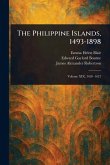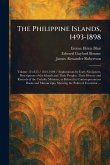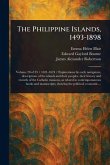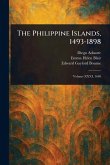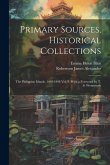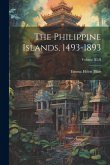Explore the tumultuous history of the Philippines during a pivotal era with "The Philippine Islands, 1493-1898." This meticulously compiled volume, drawing from contemporaneous books and manuscripts, offers a comprehensive view of the Spanish colony in the 17th century. Delve into explorations by early navigators, vivid descriptions of the islands and their diverse peoples, and detailed records of Catholic missions. Volume XLIII, spanning the years 1670-1700, sheds light on the political, economic, commercial, and religious conditions that shaped the islands from their initial interactions with European powers until the late 19th century. Gain insight into key historical events, including the demarcation line of Alexander VI, and understand the lasting impact of colonial history on Southeast Asia. This historical text provides invaluable insights into the complex interplay of cultures and powers that defined the Philippines, making it an essential resource for anyone interested in colonial history, exploration, or the rich past of this vibrant archipelago. This work has been selected by scholars as being culturally important, and is part of the knowledge base of civilization as we know it. This work is in the public domain in the United States of America, and possibly other nations. Within the United States, you may freely copy and distribute this work, as no entity (individual or corporate) has a copyright on the body of the work. Scholars believe, and we concur, that this work is important enough to be preserved, reproduced, and made generally available to the public. We appreciate your support of the preservation process, and thank you for being an important part of keeping this knowledge alive and relevant.
Bitte wählen Sie Ihr Anliegen aus.
Rechnungen
Retourenschein anfordern
Bestellstatus
Storno



